What do the intense match atmosphere of high-level rugby and long-term strategic planning in an international mining company have in common? Can successful teams, in business or in sport, accommodate mavericks? And how important are trust and honesty in an environment dominated by ruthless achievers for whom winning the game is virtually all that counts? Fellow South Africans François Pienaar, who lifted the Rugby World Cup trophy as South Africa’s captain in 1995 – in the presence of President Nelson Mandela – and Jan du Plessis, Chairman of Rio Tinto, met up near London to discuss the secrets of their respective professions. Fittingly, their conversation took place overlooking the impressive playing field of Twickenham Stadium, the world’s biggest rugby venue – home to the World Rugby Museum and to countless memories of victory and defeat.
Jan du Plessis: We are both South Africans, I love rugby, and I think like most South Africans we both felt an unbounded admiration for Nelson Mandela. So, François, my first question just has to be: What was it like to lead that remarkable team to victory in the 1995 World Cup, at such a pivotal moment in South African history?
François Pienaar: It was magical, of course, but only in retrospect. To get a team to perform there has to be talent, and I was fortunate enough to captain a team made up of fantastic individuals, with a visionary coach and a great management organization. But talent is only half the story. Don’t forget that we only came out of isolation in 1992, because of the ban against apartheid, and so we didn’t have the experience other teams had. Because of this we set about planning the whole project just as an engineer would – identifying the problem, then the solution, then the phases we would go through. Remember, too, that we were amateurs. We had to get up and go to work every morning – and then train in the evenings. The World Cup was our project, and our obsession with detail was key – just as important as the talent at our disposal.
du Plessis: When people ask me about leadership, I say – and this is something I can’t stress enough – it’s all about people. And it sounds like you’re saying that rugby, too, is about studying people, understanding people.
Pienaar: Yes, it’s about trying to find that competitive edge. In an environment like the World Cup, where that edge might win or lose you the trophy, you don’t want to leave any boxes unchecked. It’s about honesty, too. To build an outstanding team you need all the individual parts that make up the whole, always maintaining a clear hierarchy: the coach, the captain, the team. If an individual doesn’t perform, they don’t belong in the team.
du Plessis: What about the emotional dimension of that World Cup final? Mandela was there in the stand, the nation was coming together: How did that feel?
Pienaar: It’s difficult to describe the feeling. There are many conflicting emotions – within yourself, within the squad – and as captain you have to keep those emotions under control. For other games, the coach – my mentor, and a phenomenal person – would sit with me two days before the match and run through our strategy. “Cappy,” he would say. “Should we start the engine?” Meaning: Is the team in the right place emotionally, are they ready for the game? A rugby game isn’t like business where there’s time to fix things. You’ve got just 80 minutes to get everything right – and so you really need to understand the personalities of the individuals involved.
du Plessis: I think this is a key aspect of leadership, in both business and sport: recognizing that a team is made of individuals, and that different individuals need different approaches. In the mining industry we don’t have anything comparable to a Rugby World Cup final. This is an industry that’s all about long-term planning, not about isolated moments. It takes us years to plan projects that will be implemented over a five- or ten-year period, with the aim of seeing a return on that investment in 20 or 30 years’ time.
Pienaar: It’s interesting that the timespans we’re talking about here are wildly divergent – my 80 minutes, versus your 20 or 30 years – and yet the principles remain the same: a well thought-out, consistent strategy and the skillful handling of emotions.
du Plessis: Absolutely. Emotions matter because values are the single most fundamental component of leadership. People sometimes think that getting to the top of an organization is about professional brilliance, or hard work, or showing how smart you are. But that is, at best, only partially true. First and foremost it’s about the values that drive you. I’ve been in meetings where emotions are running high: twelve or fourteen directors, who all care passionately about the business but disagree about the direction to take. The only way to resolve this situation is to return to your values, the compass that guides your business, and ask yourself: Where are you trying to get to?
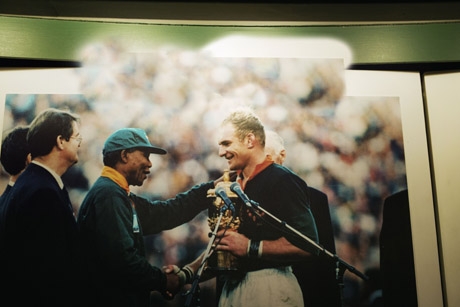
A moment when rugby, politics,and history converged: Nelson Mandela hands François Pienaar the 1995 World Cup after South Africa defeated New Zealand in extra time.
“Nelson Mandela inspired trust. He achieved this in an environment where no one had trusted before.”
- Jan du Plessis
Pienaar: Are these debates driven by the issue alone – or do individual egos play a part, too?
du Plessis: Well, “ego” is perhaps a rather negative word. Strong personalities come into play and that’s fine. Our directors include people with backgrounds in business, sports, politics. They have different characters and different nationalities, and these differences emerge in the debate. My job is to bring all these individuals together and come up with the right answer.
Pienaar: It’s the same in a rugby team. In the final, our players were incredibly focused. Sometimes in other games, though, individuals with strong personalities can have a tendency to lose focus if things aren’t going their way and need bringing back into line. What happens in business, Jan, if you have a star performer whose personality doesn’t suit the organization?
du Plessis: It’s a good question. Large organizations tend to be slightly bureaucratic, and can only function effectively when there is clarity of purpose. Even so, successful organizations should have some latitude for accommodating individuals who don’t fit the mold. Though there are limits: If an individual’s behavior disrupts the team dynamics then he or she will simply have to go. In such cases there’s a thin line between being a leader and becoming an obstacle.
Pienaar: In the rugby scenario, leadership is all-encompassing. In the match situation you have to make the right calls, under pressure, the whole time. Without a high-performance culture, based on absolute trust, you’ll fail. The worst moment of my time as captain was when we toured New Zealand in 1994; in the second game we lost our discipline, and one of our players bit another player’s ear. The pictures were all over the media, I was called for an emergency meeting in the early hours, and in the end he was sent home. Keeping your feet on the ground, whatever the circumstances, is challenging – but that’s what makes captaincy such an interesting role.
du Plessis: And for those 80 minutes on the field, it’s a huge role.
Pienaar: Well, my coach and mentor transformed the way I captained. He taught me to see myself as a benign dictator – I make all the calls, all the starter moves. Once you have a strategy in place it’s all about effective execution. Even if I make a wrong call, if everybody follows my lead, with passion and precision, then that call will ultimately turn out to be right.
du Plessis: That’s a point I’d like to pick up, François. I’ve always been skeptical of organizations where the chief executive is a super-star figure. In healthy organizations, as I see it, the CEO knows his or her place. As chair you represent the board of directors and keep an eye on what the CEO, the captain, is doing. Keeping that balance is key. Leaders who lose that focus lose the plot. How can they expect their team members to put the team first, if they put themselves first?
Pienaar: In business, you have time to ponder these issues. In sport, you don’t. You have to make a decision in the moment, and once this decision is taken, you have to make the most of it.
du Plessis: True. There are interesting parallels emerging here between coach and captain and the chair and the CEO. The most important person in rugby is the captain, not the coach; and in business the most important person is definitely the chief executive, not the chair. A good chairperson needs to have his or her ego well in check: Their job is to make the CEO look good. If they want to criticize the chief executive they should do it privately, never in public and preferably not around the board table. I also think that a good chair treats the chief executive with great respect and provides honest feedback.
Pienaar: Yes, respectful honesty.
du Plessis: Many people find it hard to be frank. Maybe that’s a difference between business and sport, François: As a captain, you have to build trust but can’t always afford to be tactful.
Pienaar: Building and maintaining trust is one of the key elements of my role. After conflicts, you regain trust through your actions, not through words. “Rock star” personalities don’t last long in our field: They quickly disappear unless they can adapt to a culture of sobriety and competition.
du Plessis: But I also think that leadership requires confidence. You can’t be a good leader if you have a chip on your shoulder. So I imagine that in your world, as in mine, a good leader needs to have the confidence to listen, to admit when they don’t have the answer, and to change their mind when circumstances require.
“People sometimes think that getting to the top of an organization is about professional brilliance, or hard work, or showing how smart you are. But that is, at best, only partially true. First and foremost it’s about the values that drive you.”
- Jan du Plessis
Pienaar: Absolutely. While preparing for a match we welcomed input from everybody – we utilized all the brain power at our disposal. But preparation and execution are very different things.
du Plessis: So what do you do when you have a superstar in your team – someone who can be either disruptive or exceptional? How do you make sure it’s the latter, not the former?
Pienaar: Deal with it quickly. If your gut tells you it isn’t going to work, take the pain sooner rather than later. Otherwise you run the risk of neglecting the others. Hiring and firing isn’t so straightforward in the business world, though …
du Plessis: So you’re saying, François, that a game like rugby doesn’t have room for mavericks?
Pienaar: Great teams have players with the x-factor and you must allow them to express this x-factor, but if the player becomes a maverick that disrupts the core values in the team then there is no place for him.
du Plessis: You make it sound as if individual players can simply come and go. Yet surely stability and continuity are valuable, too.
Pienaar: Yes, there needs to be a strong core. It’s the culture of this core that makes a high-performing team. The secret to achieving this is to surround yourself with people who are better than you, people with the drive to succeed.
du Plessis: Yes, it’s about identifying talent. Luck plays a part, too, of course.
Pienaar: That’s true – but if you’re well prepared to be lucky perhaps luck is more likely to find you. Certainly there’s no shadow of a doubt that I’m the luckiest sportsman alive. I’d just finished studying law and started playing rugby when we came out of isolation. We were amateurs at this point – then suddenly there was Nelson Mandela and the World Cup.
du Plessis: Some things in life happen by accident, by a stroke of luck – but sometimes you have to be prepared to take a risk. Rio Tinto, once the world’s biggest and the most respected mining company, had run into serious problems at the time when they first asked me to become chairman. I declined the invitation on two occasions, because the challenges and risks they faced were enormous. When they asked for a third time, I stopped and reconsidered not only the challenge, but the wonderful opportunity they were offering – and agreed to take it on.
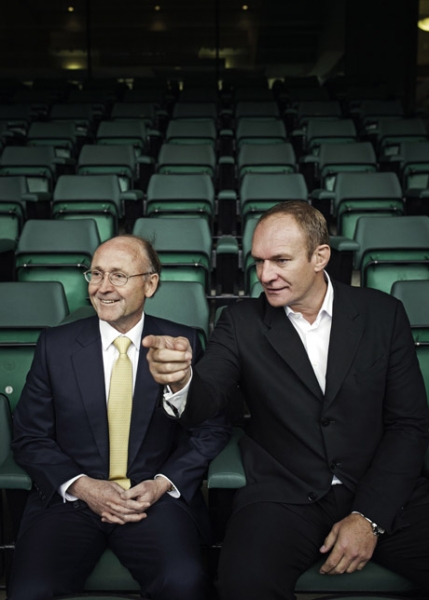
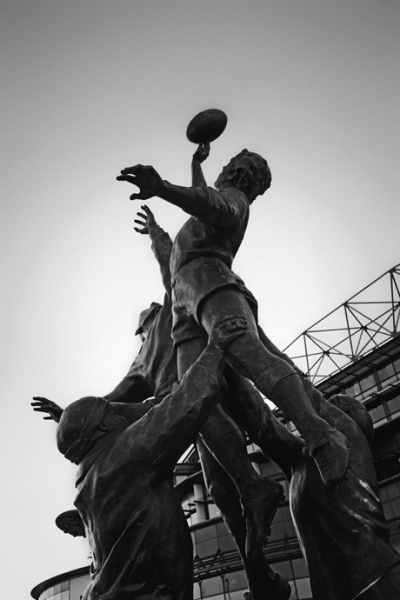
Pienaar: So it’s not only about motivation. It’s about ambition, too.
du Plessis: It is, but great leaders have an innate sense of responsibility. Sometimes in business you see really ambitious people and you know they’re going to get nowhere. Their ambition is too focused on themselves rather than on their team’s success.
Pienaar: Looking beyond talent, beyond career moves, to the individual personality, I’m wondering how important emotional awareness is in a business leader. Sir Alex Ferguson, Manchester United’s legendary coach, once talked to me about David Beckham, and it was clear that he understood his players better than anyone else, understood where they were coming from, and which ones would stay on top and keep their form – Beckham, of course, being a prime example.
du Plessis: I completely agree that emotional awareness is key. I was relatively young – around 50 – when I became chairman of British American Tobacco, and over a period of time I made a point of getting to know the chairmen and chief executives of other major companies by inviting them for lunch. One day, my PA commented on what nice people many of my lunch guests were, and I thought to myself: Unless you’re able to have a nice chat with my PA as she takes you to the dining room, you’re never going to become a top business leader, because getting to the top calls for emotional awareness of the people around you. All those tough-minded, brutal executives on TV and in the movies are repeating a highly misleading cliché. You don’t get to the top of organizations by being a brute. You get there by being emotionally aware. Perhaps you’d like to enlarge upon this, François, by talking about Madiba.
Pienaar: What can I say? I was incredibly lucky. My relationship with Nelson Mandela developed after the World Cup. That’s why it was so special. When we were living in London – our son Jean had just been born – the phone rang early one morning and it was Madiba. It was him in person, not one of his aides, and he spoke to my wife. He congratulated her on Jean’s birth and said he would like to be his godfather. He gave our son a Xhosa (Mkhokeli) name which means “leader”. He really cared as a leader – that’s why people all over the world loved him.
du Plessis: I think his calm, persuasive leadership style teaches us a lesson about the character of great leaders. There was his humility, and the fact that people were able to trust him; but just as importantly, he was also prepared to trust others. I only met him once in my life, at a private dinner in Cape Town. He was very down-to-earth, a warm human being. He filled the room with his presence.
Pienaar: I shared some very personal moments with him. He was magnanimous and caring, but he also sacrificed a great deal. His goal was a peaceful, democratic South Africa and he achieved so much in such a short while – but there was a cost, too, in terms of friendships, family, and time.
du Plessis: I expect this really came home to you when you visited his cell on Robben Island.
Pienaar: Yes. It was there that the enormity of it struck me for the first time. When you go into that cell and touch the walls. When you realize he was confined there for seventeen years and came out with forgiveness in his heart …
du Plessis: Tell me about the moment when he came to see you before the World Cup final.
Pienaar: I was in the changing room before the game, getting ready and strapped up, and the players were very tense. The atmosphere was electric. Then there was a knock on the door, the door opened, and there he was. He walked in, with his people, and he had a Springbok jersey on! The powerful symbolism of that moment is almost impossible to convey in words …
du Plessis: You can’t really describe it to people who didn’t grow up where we grew up. Black people in Apartheid South Africa hated rugby, absolutely hated it!
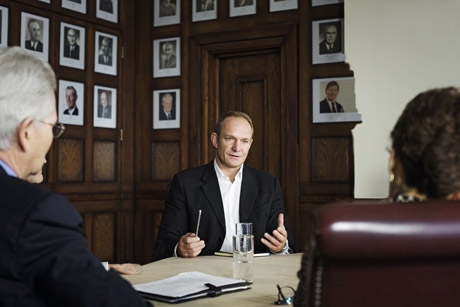
“The principles remain the same: a well thought- out, consistent strategy and the skillful handling of emotions.”
- François Pienaar
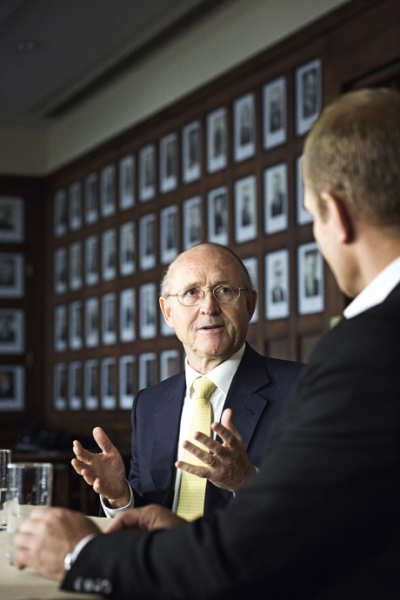
“I’ve been in meetings where emotions are running high. The only way to resolve this situation is to return to your values, the compass that guides your business.”
- Jan du Plessis
Pienaar: And it didn’t stop there. After he had walked into the changing room, wearing a Springbok jersey, he turned around and I saw my number on his back! The emotion was almost overpowering. I would have run through walls and over hills, and maybe this gave us the edge we needed. “Hello, boys!” he said. “Good luck!” And he turned around and that was it. What a moment. I’d learned to sing our anthem but on the field I couldn’t sing at all, the emotion was just too intense.
du Plessis: Nelson Mandela inspired trust. He achieved this in an environment where no one had trusted before. But what happens when the business world loses trust? In Europe, North America, and Australia I’ve observed a serious breakdown of trust between society and leaders – in business, politics, and the media. For decades we’ve been witnessing a growing rift between the rich and the poor in society – and in today’s more transparent world these inequalities are more obvious than they were before. We’re less deferential toward our leaders now; we perceive the bearers of political mandates as ordinary human beings. All of which makes it even clearer just what an extraordinary figure Mandela was.
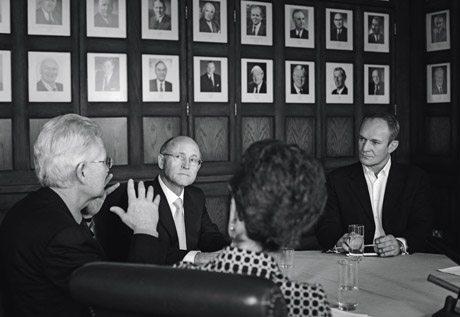
Watched by rugby’s hall of fame in the Council Room at Twickenham stadium, Damien O’Brien (left) and David Kidd, both from Egon Zehnder London, and Ulrike Krause, “Connecting Leaders”, spoke with Jan du Plessis and François Pienaar.
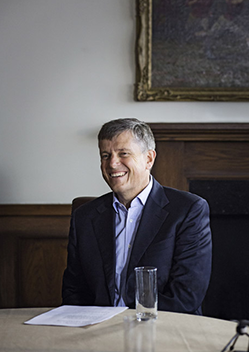
Pienaar: This situation was exacerbated by the global financial crisis, when many business institutions were clearly perceived to have failed their stakeholders.
du Plessis: Some were asleep on the watch, certainly; but I think there was a collective amnesia, too. It’s easy to criticize individuals with hindsight, and the loss of trust is affecting other sectors, too – the media being a prime example.
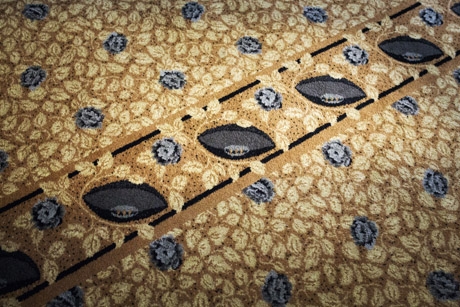
Pienaar: Some may have been “asleep on the watch” like you say – but some appear to have been motivated by greed and self-interest, which is why they’ve lost people’s trust.
du Plessis: That’s a good point.
Pienaar: People can forgive mistakes – but where actions are driven by greed and self-interest you are sure to lose their trust. In Clint Eastwood’s movie Invictus, I received a disproportionate amount of credit, which made me feel uncomfortable – and some of my team members probably felt the same way. Luckily, I’d had no personal input in the movie, or I might have lost the trust of some of my team. And that trust can only be rebuilt through actions – words alone are not enough.
du Plessis: Some wealthy entrepreneurs may feel they are at liberty to do what they like with the funds at their disposal. But I think most chairs of UK corporations today are highly aware of the trust placed in them and the obligation this entails. The word “trustee” means “someone to whom trust is given” – these business leaders know that they are custodians, trustees of other peoples’ money. Individuals on whom trust is bestowed must prove themselves worthy of that trust – which brings us back to Mandela taking a chance on trust again, François.
Pienaar: Yes, and it’s good to remember that life-changing, history-changing moment when he walked out onto the field with a Springbok on his heart. There were 63,000 people – a crowd that included both conservatives and liberals – chanting “Nelson, Nelson, Nelson!” As the final whistle blew the scores were level and I had to rally the team again. Then the stadium started singing Shosholoza, a Ndebele miners’ song: 99 percent of the spectators that day were white, but they were singing a traditional black song. I’m not sure how it happened – there was so much magic on that day, a magic that still lingers on. When we became a democracy in 1994, the world expected us to fail. Twenty years later, we’re a success in many ways. But I think leadership will be crucial as we take the next step forward. What do you think?
du Plessis: I agree. Things have gone really well for South Africa but enormous challenges lie ahead, and there’s a lack of leadership at the top. Again, this is about values and integrity rather than competence. I think that relationships between people are good – there’s a general understanding that we’re all in this together.
Pienaar: We need more people to follow in Mandela’s footsteps – not to fill his boots, that would be impossible, just to follow in his footsteps. I feel that if I had to live the past twenty years again I’d say: With all my heart. But for the next twenty years, it’s going to take leadership.
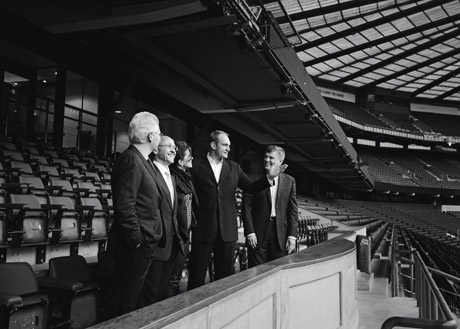
A blue-blooded view of the world’s largest rugby stadium from the Royal Box at Twickenham.
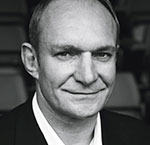
François Pienaar,
born 1967 in Vereeniging, South Africa, was captain of the Springboks, South Africa’s national rugby team. In 1995, he lifted the World Cup trophy in Johannesburg after an intense final against New Zealand’s All Blacks. This most political of sporting victories crowned President Nelson Mandela’s bold “one team, one nation” campaign, becoming a symbol for the rainbow nation and post-Apartheid South Africa. More than ten years later, Mandela and Pienaar, played by Morgan Freeman and Matt Damon, were the central figures in Clint Eastwood’s film Invictus, based on John Carlin’s book Playing the Enemy: Nelson Mandela and the Game that Made a Nation. Nelson Mandela once said about François Pienaar: “It was under his inspiring leadership that rugby became the pride of the entire county; his leadership extended beyond the field of rugby, and he truly represents all South Africans. Under his inspiring leadership a nation was brought together.” Pienaar is the only South African to have been inducted into both the International Rugby Hall of Fame and the IRB Hall of Fame. His great words after leading his team to an underdog victory in the 1995 World Cup – “We didn’t have the support of 63,000 South Africans [in the stadium] today, we had the support of 42 million South Africans” – were key in uniting the new democracy and instilling pride and determination to create a great nation. After the World Cup, Pienaar became a player/coach and later CEO of the London club Saracens. He returned to South Africa with his wife and two sons in 2002 and remains a Board Member. At the age of 33 he received an honorary doctorate at the University of Hertfordshire. In 1999 he co-wrote his biography, The Rainbow Warrior, with Edward Griffiths. In 2003 he joined First Rand Bank and became provincial chairman of FNB in the Western Cape until 2009, when he founded Advent Sport Entertainment and Media Pty Ltd. François is also co-founder of the FNB Varsity Cup and more recently ASEM Varsity Sports. He is a patron of CHOC (Children’s Haematology Oncology Clinics). In 2003 he founded MAD (the Make A Difference Foundation), which supports academically talented youngsters from disadvantaged communities; François is currently Chairman of MAD.
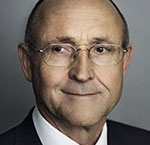
Jan du Plessis,
born 1954 near Cape Town, South Africa, has been the Chairman of Rio Tinto since 2009 and lives in England. Du Plessis, who holds both British and South African passports, has earned a reputation as a conciliatory negotiator and successfully led Rio Tinto’s re-emergence following a deep crisis in the years before his arrival. A lifelong rugby fan, du Plessis held various management positions in South Africa’s Rembrandt Group before becoming Group Finance Director of Compagnie Financière Richemont and, from 1990 through 1995, Rothmans International. He moved on to become a non-executive director on the board of British American Tobacco and was later appointed that company’s Chairman. Before joining the mining industry, du Plessis held positions as Chairman of the British food company RHM and non-executive director on the board of Lloyds TSB Group. He is currently also senior independent director of Marks & Spencer.
PHOTOGRAPHY: FRITZ BECK
 Shaping Successions
Shaping Successions
 Advancing Governance
Advancing Governance
 Discovering Leaders
Discovering Leaders
 Developing Leadership
Developing Leadership